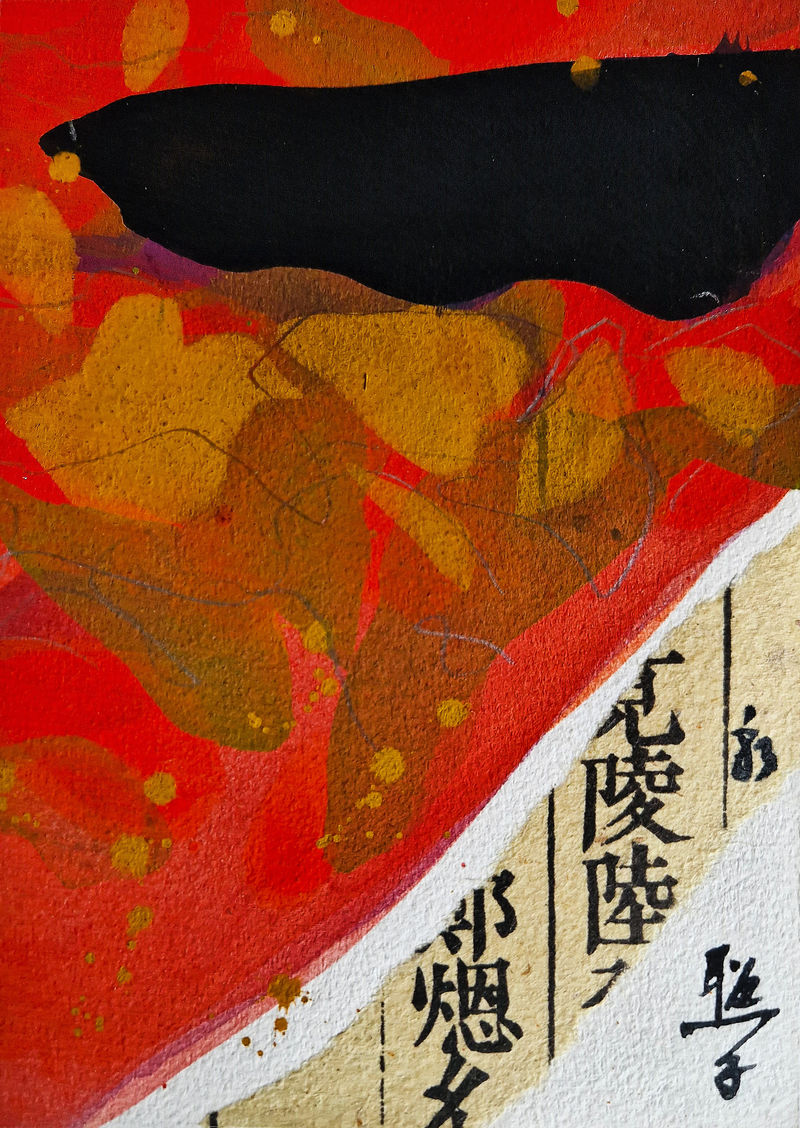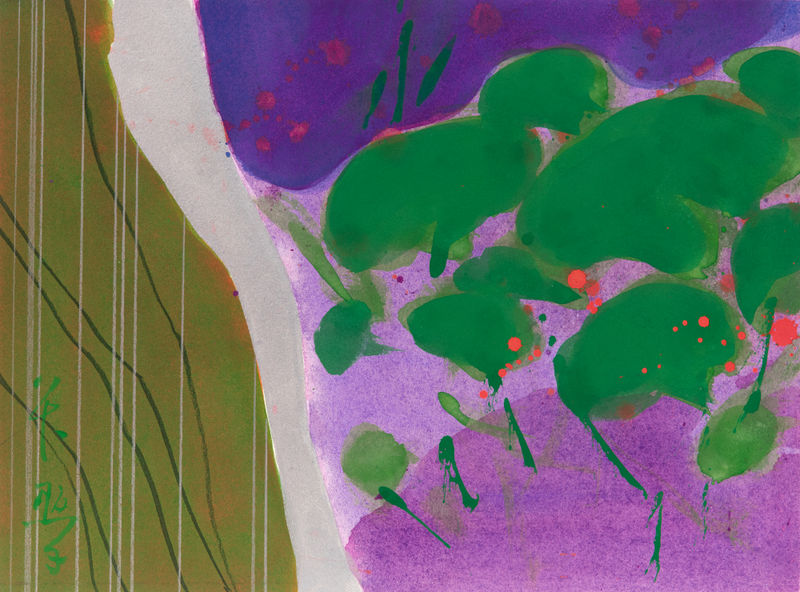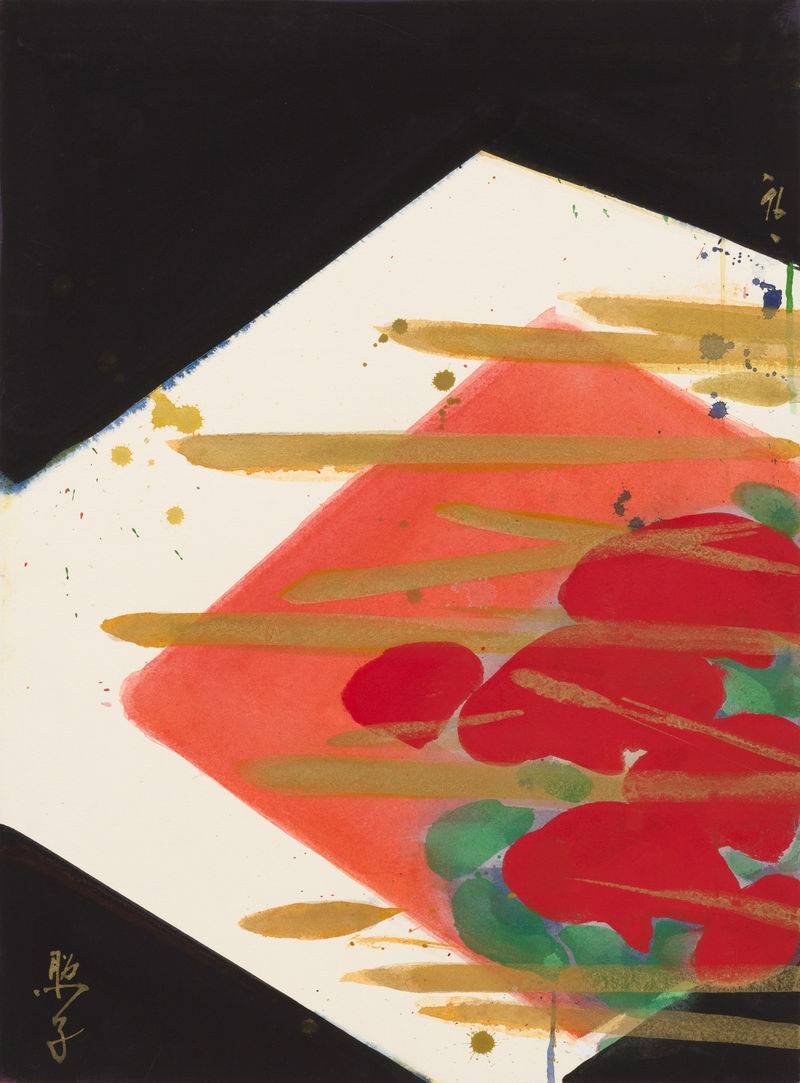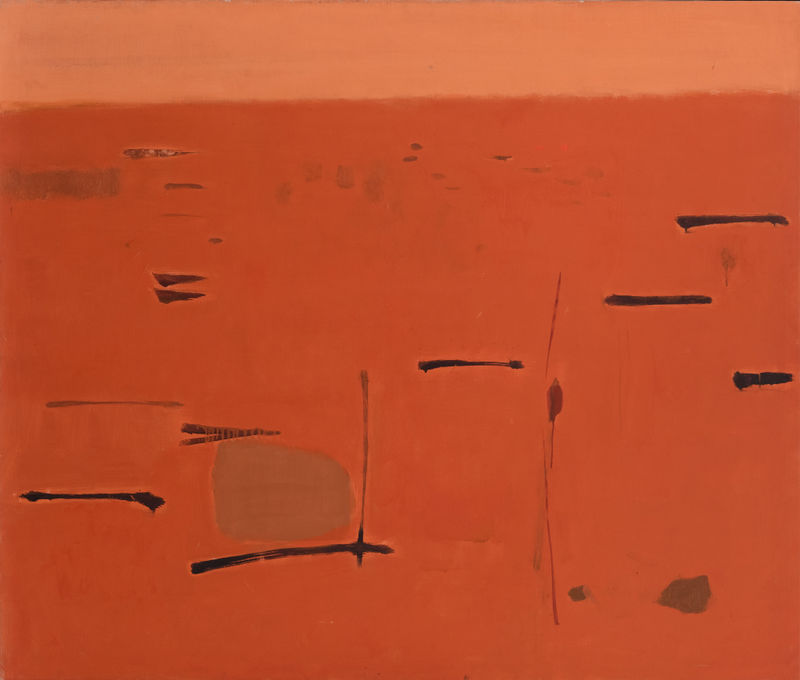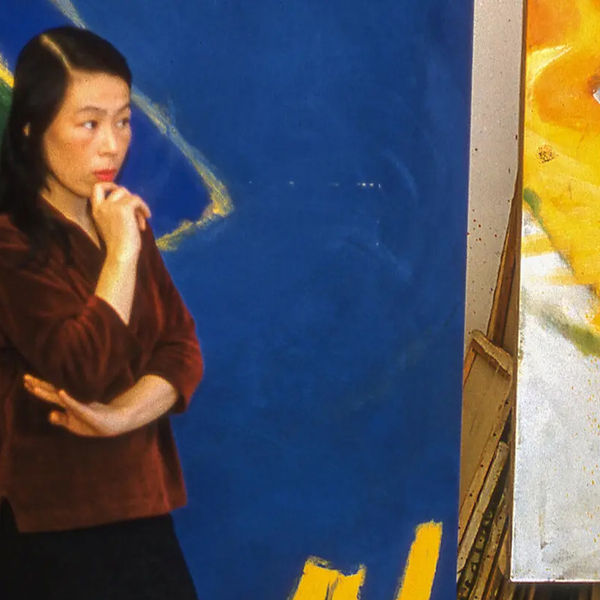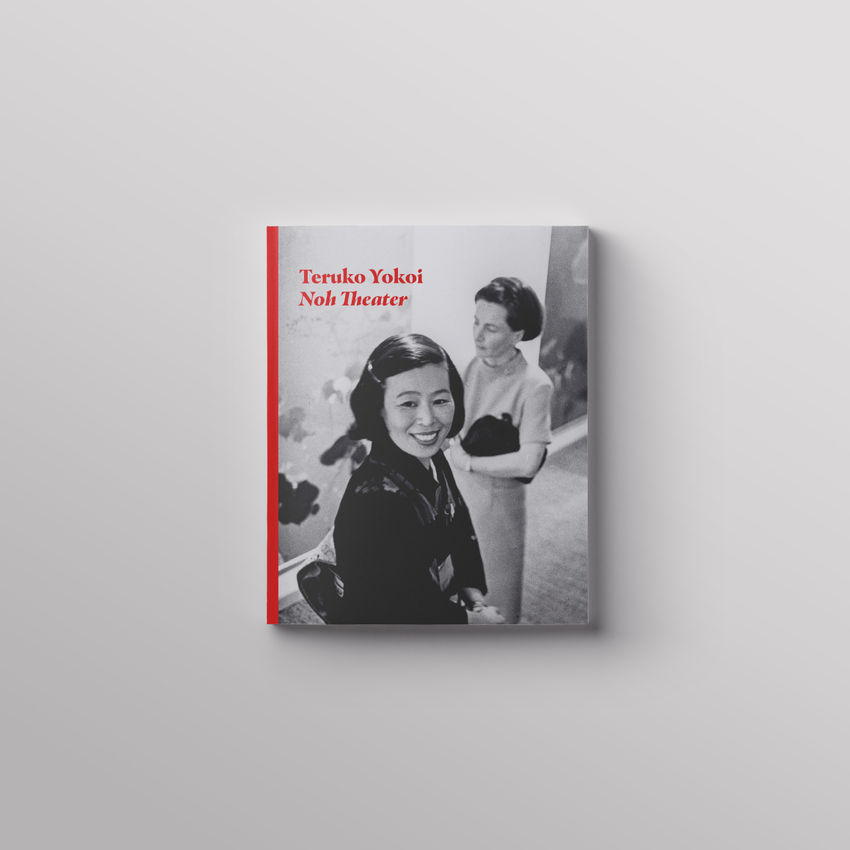
The exhibition will focus specifically on Noh Theater - one of Japan’s oldest and most revered art forms - not only as an influence on Yokoi’s practice but also as a profound metaphor for her life and artistic philosophy.
Hollis Taggart is pleased to present Teruko Yokoi: Noh Theater, an exhibition spanning the celebrated artist’s career from the late 1950s, when she lived in the Hotel Chelsea, through the early 2000s. Opening on May 1st and on view through June 14th, the exhibition will feature over twenty works that illuminate Yokoi’s remarkable ability to weave modern American abstraction with the traditional aesthetics of Japanese visual culture. The exhibition will focus specifically on Noh Theater - one of Japan’s oldest and most revered art forms - not only as an influence on Yokoi’s practice but also as a profound metaphor for her life and artistic philosophy. Just as Noh performers navigate a balance of structure and expression, Yokoi’s compositions embody a delicate interplay between discipline and spontaneity, tradition and reinvention. Teruko Yokoi: Noh Theater will be celebrated with an opening reception at Hollis Taggart at 521 West 26th Street on Thursday, May 1st, from 6-8PM.
Born in Japan in 1924, Yokoi trained in traditional Japanese painting at the encouragement of her father, a calligrapher and poet who taught her both art forms. In 1953, in the wake of World War II, she left Japan for San Francisco. As one of two Japanese students at the California School of Fine Arts, Yokoi turned to abstraction and received many scholarships and grants, one which allowed her to move to New York in 1955 to study with Hans Hofmann. Becoming one of the few women artists in the 1950s New York milieu of Abstract Expressionism, Yokoi developed deep friendships with Joan Mitchell, Kenzo Okada, and Mark Rothko, among others. In 1957, Yokoi met and later married Sam Francis, with whom she lived in the Hotel Chelsea for a few years before separating and moving to Paris. Yokoi ultimately settled in Switzerland, recognizing in its pristine landscapes the characteristics of the Japanese landscape of her childhood.
Throughout her many travels and relocations, Yokoi remained deeply rooted in Japanese cultural traditions while embracing certain modern sensibilities. She drew heavily from Japanese influences such as calligraphy, traditional music, the tea ceremony, and Noh Theater, amassing a collection of hundreds of Noh Theater books. The exhibition at Hollis Taggart suggests Noh Theater as a conceptual lens through which to view the many layers of Yokoi’s work. Much like Noh actors change masks to reveal new dimensions, Yokoi shifted identities across her various international moves. Noh Theater offered the artist a framework for maintaining the delicate balance between tradition and modernity that resulted in her masterful integration of East Asian visual aesthetics with experimental lyrical abstraction. Beyond this, Noh Theater is actually physically present in some of the artist’s works, as Yokoi sometimes incorporated antique mulberry washi paper, traditionally used to print libretti for Noh performances. This symbolic layering of fragments of Japanese visual culture within her compositions demonstrates how foundational Yokoi’s heritage was to her work, even as she travelled the world and participated in dialogues that shaped the future of modern art.
In tandem with the exhibition at Hollis Taggart, the Hotel Chelsea will be opening a Japanese restaurant named after Teruko in mid-May. Displaying a number of paintings by the artist in the Hotel’s collection, the restaurant will celebrate Yokoi’s time living and working at the Hotel Chelsea.
Yokoi’s work has been the subject of over ninety exhibitions, including two solo shows at the Palace of the Legion of Honor, San Francisco, as well as group shows at Martha Jackson Gallery, New York, Galerie Kornfeld, Bern, and Marlborough Gallery, New York. Her last major retrospective entitled Teruko Yokoi: Tokyo–New York–Paris–Bern was presented by the Kunstmuseum in Bern in 2020. The artist’s work is the subject of two museums in Japan: the Teruko Yokoi Hinageshi Art Museum in Ena and the Yokoi Teruko Fuji Museum of Art in Fuji-City.
For more information about Teruko Yokoi: Noh Theater, please contact us at info@hollistaggart.com or +1 212.628.4000.
For press inquiries, please contact Aga Sablinska at aga.sablinska@gmail.com or +1 862.216.6485.













